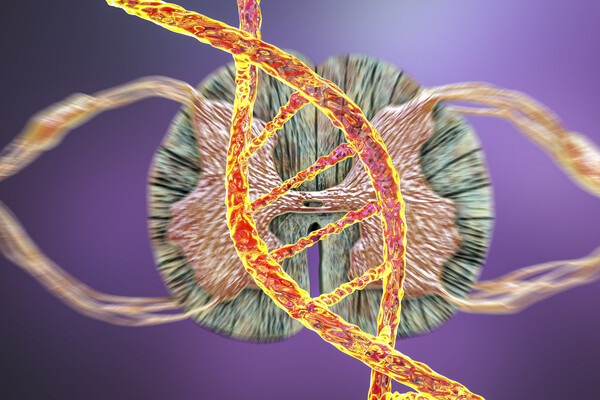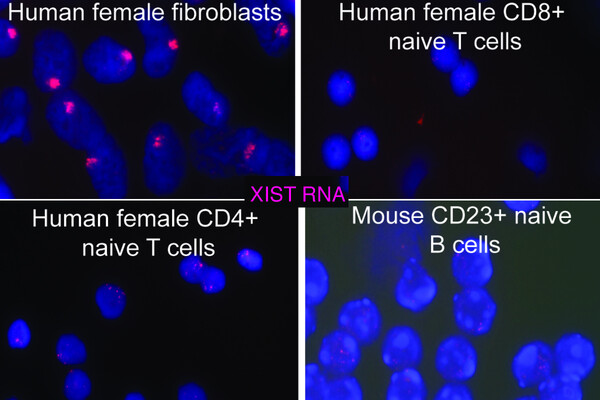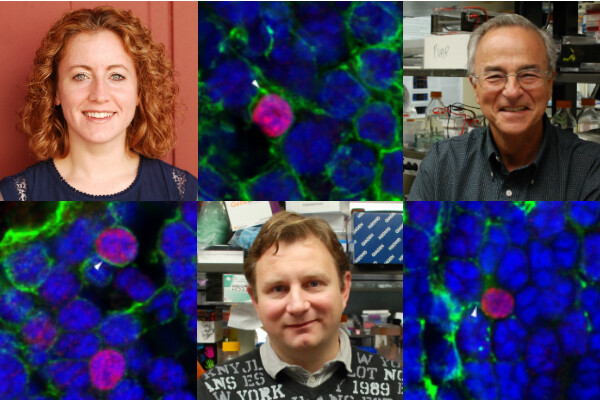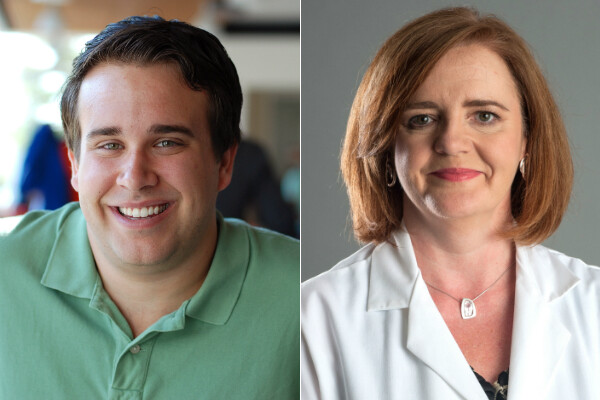5/18
Health Sciences
Penn Vet Study Identifies Mechanism Explaining Female Bias in Autoimmunity
Possessing two X chromosomes is a double-edged sword, immunologically speaking. Females are better at fighting off infection than males, but they are also more susceptible to many autoimmune conditions, such as lupus.
Penn Researchers Show Rising Opioid Prescriptions Following Low-Risk Surgeries
Physicians are prescribing more opioid painkillers than ever before to patients undergoing common surgeries, according to new research from the department of Anesthesiology and Critical Care at the Perelman School of Medicine at the University of Pennsylvania.
Proactively Treating HIV Patients at Risk for Tuberculosis with Multi-Drug TB Regimens Doesn't Save More Lives
The number one killer of HIV patients in resource-limited areas, including parts of Africa and India, is tuberculosis (TB), underscoring the need for optimal treatments and effective strategies to address this deadly co-infection.
Before Retinal Cells Die, They Regenerate, Penn Vet Blindness Study Finds
Until relatively recently, the dogma in neuroscience was that neurons, including the eye’s photoreceptor cells, rods and cones, do not regenerate. This is the reason that nerve damage is thought to be so grave. More recent studies have poked holes in this belief by showing that, in some vertebrate species, neurons can be stimulated to divide.
Penn Study: In-Car Breathalyzers for DUI Offenders Curb Drunk-Driving Deaths by 15 Percent
State laws that require drivers who’ve been convicted of drunk driving to pass a breathalyzer-type test before starting their cars saved an estimated 915 lives between 2004 and 2013, according to a study published in the American Journal of Public Health by researchers at the Perelman School of Medicine at th
Penn Medicine Wins NIH Award to Study Progressive Brain Damage from Concussions and More Severe Traumatic Brain Injuries
An international team of investigators led by experts at the Perelman School of Medicine at the University of Pennsylvania has been awarded a nearly $3 million, five-year grant from the National Institute of Neurological Disorders and Stroke (NINDS) to establish diagnostic criteria for chronic traumatic encephalopathy (CTE).
Penn Study Suggests Reduced Immunosuppression Drug Dose May Be Best for Kidney Transplant Outcomes
The kidney is the most commonly transplanted organ in the United States, with more than 17,000 transplants performed each year. Following kidney transplant, patients are routinely placed on a regimen of immunosuppressant medications to prevent organ rejection, which often includes calcineurin inhibitors (CNIs) as the backbone medication of this regimen.
To Increase Group Exercise, Penn Study Suggests Rewarding the Individual and the Team
Financial incentives aimed at increasing physical activity among teams are most effective when the incentives are rewarded for a combination of individual and team performance, according to new research from the Perelman School of Medicine at the University of Pennsylvania.
Penn Experts Warn that Touting "Naturalness" of Breastfeeding Could Backfire
Breastfeeding campaigns that extol breastfeeding as the “natural” way to feed infants could result in harmful decision-making by some parents on other important health matters, according to experts from the Perelman School of Medicine at the University of Pennsylvania.
Penn Vet Team Promotes One Health Concepts in Education
What can a scattering of dead pigeons mean for human health? Sometimes, a lot.
In the News
What’s going on with tranq?
Jeanmarie Perron of the Perelman School of Medicine says that the appearance and progression of skin ulcers and tissue loss on xylazine users is different than with other intravenous drugs.
FULL STORY →
It’s time to end the Medicare-Medicaid merry-go-round
In an opinion essay, Rachel M. Werner of the Leonard Davis Institute, Wharton School, and Perelman School of Medicine says that Medicare and Medicaid fail to integrate coverage and coordinate care across their two plans.
FULL STORY →
The quest for treatments to keep weight off after Ozempic
Researchers at Penn are conducting a co-authored study of the brains, fat and muscle cells, and eating patterns of people trying to maintain new body sizes.
FULL STORY →
Inside Penn’s transfer center
Penn Medicine’s transfer command center gets patients from affiliated hospitals and hospitals outside Philadelphia to specialized care that can save lives, with comments from CEO Kevin Mahoney.
FULL STORY →
Operating rooms are major sources of greenhouse gasses. Penn is eliminating a form of anesthesia that hangs in the air for more than a decade after use
Penn Medicine is phasing out the anesthesia desflurane at four of its six hospitals to eliminate harmful greenhouse gases, with remarks from Greg Evans.
FULL STORY →








